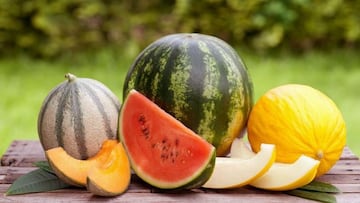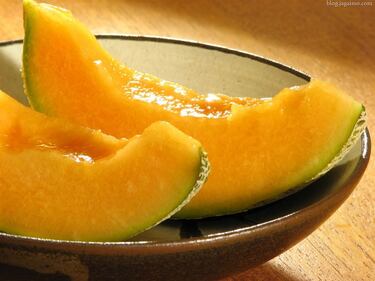Important differences between melons and watermelons you should know
Some people use the term melon interchangeably with the larger watermelon, but size isn’t the only difference between them.

Melon or watermelon? What should you choose from two of the summer’s star fruits? Both have significant antioxidant properties that protect the body from cellular damage. Rich in vitamins and minerals, they help keep us hydrated and in good health.
But their benefits extend even further. Both fruits are loaded with antioxidants and help guard against cellular damage. Their high vitamin and mineral content balances the body internally and supports overall good health.

Related stories
Watermelon is much more filling than melon, making it an excellent choice for diets. However, many people avoid eating watermelon at night to prevent frequent trips to the bathroom, which can disrupt sleep. As for melon, it contains the same amount of potassium as bananas but with half the calories. Finding a perfectly ripe melon or watermelon during summer is one of life’s great pleasures. Let’s look at the benefits of each fruit in turn.
What are the benefits of watermelon?
- About 95% of this summer fruit is water.
- It is very low in calories: for every 154 grams there are 48 calories.
- Provides more nutrients per calorie consumed than melon.
- It is rich in vitamin C.
- It has a high beta-carotene content.
- It provides the necessary daily amount of vitamin A for our body.
- It also has vitamin B1 and B6, as well as biotin, magnesium, potassium and fiber.
- It has three times as much tryptophan as melon, an amino acid that facilitates a night's rest.

What are the benefits of melon?
- It contains a lot of water, although less than watermelon: 90% of melon is water.
- Melons have more fiber than watermelon and more grams of protein per slice of cut melon.
- Melon has almost twice as much sugar as watermelon, but it is still a very small percentage given the amount of water they contain.
- Half a kilo of melon rarely exceeds 150 calories.
- It is rich in carotenes and potassium, reaching the 12% of potassium required by the body in just one slice of cut melon.
- Provides 126% of the recommended daily value of vitamin B6 and 90% of the recommended daily value of vitamin C.
- Additionally, it is an excellent source of fiber, folic acid, vitamin A, vitamin B3 (niacin), vitamin B5 and vitamin B1 (thiamine).
- Due to its high water and potassium content, melon becomes a great ally to combat cardiovascular diseases.
- It has a high content of vitamin C.
- Copper levels are necessary for the production of collagen to repair the body’s tissues.

Whatever you decide upon, you can be sure that it was a good call. Both of these fruits are delicious and healthy choices and provide you with a variety of ways to enjoy them. Chop into chunks, slice into holdable ‘smiles’ or whiz it up in a smoothy.
Complete your personal details to comment